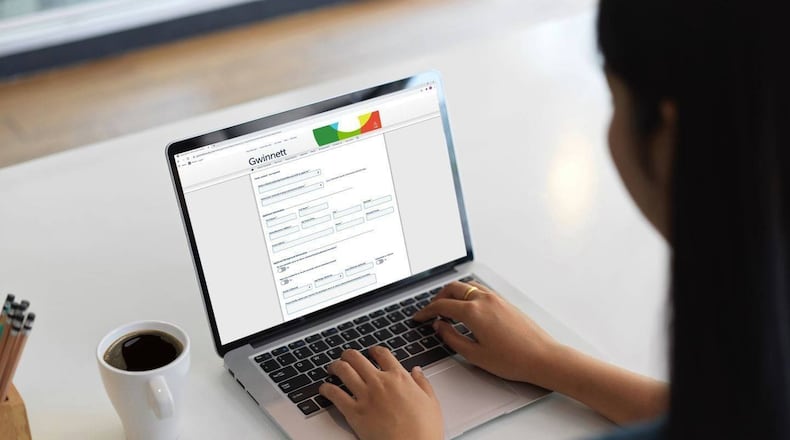Two months after Gwinnett County received $25 million in new federal funds for its emergency rental assistance program, 96% of the money has been spent or committed, keeping thousands of households from eviction or utility disconnection.
Although many aspects of life have returned to normal after multiple COVID-19 surges, and nearly every day brings news of a hot job market, families in Georgia’s second-largest and most diverse county continue to apply for emergency rental assistance.
Among them were 33-year-old Vonda Fuller and her two sons, who were saved the day before an eviction hearing by some of Gwinnett’s new funds.
“I’m just really thankful and grateful that the program even exists,” Fuller said. “I hope that they are able to help many, many more people, because a lot of people are not faring so well with the new way of the world and the inflation.”
Congress last year allocated nearly $1 billion in emergency rental assistance funds to Georgia, which has been slow to distribute it. The state in December reallocated $25 million each to Fulton and DeKalb Counties. At the end of February, facing a September deadline to spend the money, the state gave another $25 million to Gwinnett.
People were waiting.
“Applications were continuing to come into the portal for assistance and we were nearing the point where we would no longer have funds,” Gwinnett County Grants Director Shannon Candler said.
As of last week, the county had spent about $7.9 million and approved an additional $16.1 million of the new money for applicants.
Although some public health and economic indicators have been improving, rents have skyrocketed. Many people, after losing jobs in the pandemic, re-entered the workforce with lower wages or reduced hours, HomeFirst Gwinnett Director Matthew Elder said.
“The most vulnerable people in the population are the ones that get hit the hardest,” Elder said.
The county’s pandemic-driven eviction intervention program, Project Reset 2.0, pays back rent and utilities to eligible households’ landlords in an attempt to stave off eviction. To qualify, households must meet income eligibility requirements and must have been financially impacted by the pandemic.
HomeFirst Gwinnett, which manages the program, last month was approving an average of $1.2 million per week in emergency assistance for renters. That equates to hundreds of households per week receiving new or extended aid, according to county data.
Amounts vary by household, but the average monthly rent for recipients is about $1,400, Candler said.
As of last month, Gwinnett had spent about $54 million in total federal funds to save about 6,000 households, or approximately 14,000 people, from eviction or utility disconnection.
HomeFirst works with the magistrate court to catch people in eviction proceedings. That is how they found Fuller.
She had been working at a cosmetics store on March 12, 2020 when her family moved into a two-bedroom townhome in Norcross. Four days later, the store closed as the coronavirus pandemic began to spread in Georgia.
Initially undeterred, Fuller opened her own salon. She operated it successfully for more than a year, but her youngest son was still a baby and she often had to work late. Burned out, she closed the salon and began traveling to style hair, but that didn’t bring in enough. Starting in December, she repeatedly came up short of her $1,400 rent.
Fuller’s landlord last month filed for eviction. When she went to respond to the dispossessory notice, a representative asked if she’d heard of Project Reset.
Fuller’s court date was about a week later. She started the application immediately on her phone and called HomeFirst to follow up.
At about 4:45 p.m. the day before Fuller was due to appear in court, she got word her application had been approved. At court the next day, the judge told her landlord, “The check’s in the mail.”
Fuller still has to find a new place to live now that her lease is up. She said she is thinking of moving in with others, but now she gets to walk away without any harm to her credit.
“I made my prayers, but I didn’t want to take for granted the possibilities of what could happen,” she said. “I didn’t know they were going to take care of everything, so I felt really blessed. I prayed really hard for a miracle and I feel like it happened.”
About the Author
Keep Reading
The Latest
Featured


